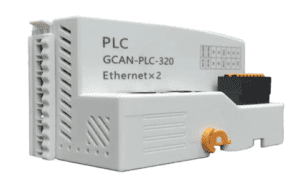It’s 2025, and Artificial Intelligence (AI), along with predictive analytics, has quietly taken over the driver’s seat in consumer tech. We’re not just talking about fancy gadgets anymore. Everyday devices – things you barely think about – are suddenly smarter, almost eerily so. Your home adjusts itself before you ask. This isn’t science fiction; it’s the new normal, and companies are scrambling to outdo each other by making tech that feels almost human.
Personalisation Like You’ve Never Seen
Let’s be honest, people expect their devices to “get” them now. It’s no longer about simply following instructions; it’s about staying one step ahead. AI-powered personalisation has quietly become the driving force behind so much of what we use every day. Predictive analytics takes it up another notch, shaping experiences before you even realise you want them.
Brands that nail this? They’re not just improving convenience; they’re winning loyalty and market share. Studies keep stacking up proof: businesses that lean into predictive analytics see happier customers who stick around longer. Intelligence pays off.
Smart Homes with Real Intuition
Remember when “smart homes” meant telling Alexa to turn on a light? Cute, but outdated. This year, AI has given homes actual intuition. Your thermostat doesn’t just wait for you to fiddle with it—it lowers the heat five minutes before you walk in, because it knows you’ll want that. Refrigerators, washing machines, and vacuum cleaners, the most basic appliances, are now upgraded with predictive analytics and AI. Lighting adjusts to your mood without you lifting a finger. That’s less stress, fewer bills, and a level of comfort that’s hard to walk away from once you’ve had it.
Health Tech with a Sixth Sense
Wearables have taken a leap, too. They’ve gone from tracking steps to actually reading between the lines of your health. Your smartwatch is now capable of warning you days—or even weeks—before you’d notice something’s wrong by picking up irregular patterns in your sleep or heart rate. For millions of people, this early insight isn’t just convenient; it’s life-changing. Preventive care is no longer a luxury. It’s baked into the gadgets sitting on your wrist.
Everyday AI: Quiet, Helpful, Everywhere
AI isn’t only about homes and health. It’s sneaked into the mundane corners of daily life – your car, your virtual assistant, even the chatbot that handles your complaints at 2 a.m. And these tools? They’ve stopped waiting for your input. Now they predict. Your assistant tells you to leave early because traffic’s building up. Your car tweaks its settings to your habits without you noticing. Even customer service feels less painful, with bots that solve problems instead of repeating canned lines.
And here’s something you might not expect—predictive analytics is reshaping rewards and loyalty programs, too. Platforms now study behaviour closely, dishing out perks and promotions that feel oddly personal. It’s a lot like those no deposit bonuses we’ve all seen, a little something extra upfront with no questions asked. It’s a clever way to get you to stick around and see what else is on offer.
The Balancing Act: Innovation vs. Privacy
Of course, all this magic doesn’t come without strings. With personalisation comes the tricky business of data – who owns it, who uses it, and how safely. The most innovative companies are starting to process information locally and be upfront about their practices because people notice. Trust has become as valuable as the tech itself. Without it, even the slickest innovations fall flat.
The Bottom Line
The change is apparent. The rules of how we interact with the world around us and consumer tech are being reshaped at an exponential scale by AI and predictive analytics. Workflows adapt on the fly. Shopping feels eerily tailored. Even healthcare is leaning into data that predicts anomalies before symptoms show.
No longer is technology there to serve you; it starts to know you. It’s a shift from reacting to anticipating. The brands that master this – and respect your privacy while they’re at it – will define the next wave of innovation. In this era, the best technology isn’t the flashiest. It’s the one that works for you, quietly solving problems before you even know they are there.



































